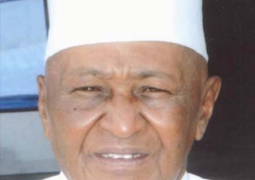The men and women in uniform from across the world have been risking their lives to foster peace in war-torn countries and conflict zones.
As the world marks yet another international peace-keeping day, we salute all those peace-keepers, including those from The Gambia, for their sacrifice, dedication and efforts in seeking world peace.
United Nations peacekeeping has adapted its policies, revised its structures and developed new practices and training to better perform its life-saving work.
Since its beginning in 1948, United Nations peacekeeping has evolved into one of the main tools used by the international community to manage complex crises that threaten international peace and security.
The International Day of United Nations Peacekeepers, which is commemorated on 29th May each year, is an occasion to salute more than 111,000 peacekeepers serving in 15 mission-countries in some of the world’s most volatile and dangerous environments.
This day is also a time to mourn fallen peacekeepers, among them, more than 3,100 “Blue Helmets,” wearers, who have died during active service devoting their lives to peace, including 111 men and women in 2012.
This year, the United Nations is marking the day, by highlighting that international peace and security needs are changing rapidly, and UN Peacekeeping is adapting to meet these new challenges, so as to help people and countries coming through some of the world’s most destructive conflicts.
Currently, UN Peacekeeping operations receive contributions of military and police personnel from 116 member states. This impressive number reflects strong global confidence in the value of United Nations Peacekeeping, as a tool for collective security, the global body says.
Meanwhile, while we continue to pray for all those police and civilian personnel who lost their lives during peace-keeping operations, we hail the efforts of the governments who have sent troops to maintain peace in the troubled regions.



